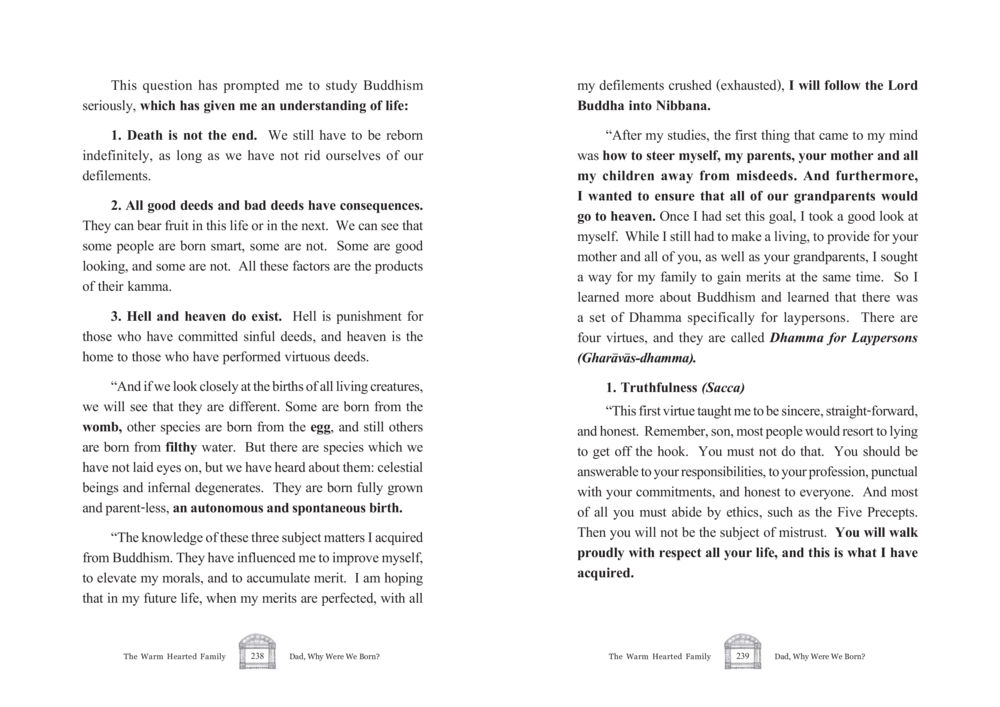Buddhism and the Understanding of Life : หน้า 120/207
The Warm Hearted Family : หน้า 120/207 Exploring the concepts of karma, rebirth, and the virtues of Buddhism as a guide to better living and moral elevation.
0 ครั้ง

สรุปเนื้อหา
The text reflects on serious studies of Buddhism and how its teachings on rebirth, karma, and consequences of actions shape a more meaningful life. It emphasizes the importance of performing good deeds, understanding life's cycle, and aspiring for a better future. The author desires not only personal improvement but also aims to guide their family towards virtuous living and ensure the well-being of ancestors, embodying the values taught in Buddhism, including truthfulness and ethical conduct. The study culminates in a hope to eventually attain Nibbana, aligning oneself with the teachings of the Lord Buddha. In seeking to harmonize personal responsibilities with spiritual growth, the text illustrates the Dhamma for laypersons and its practical application in daily life. This sets a path for moral elevation through self-awareness and commitment to Buddhist virtues.
หัวข้อประเด็น
-Karma and Rebirth
-Moral Conduct in Buddhism
-Dhamma for Laypersons
-Consequences of Actions
-Virtues in Buddhism
-Personal and Familial Responsibilities
-Path to Nibbana
ข้อความต้นฉบับในหน้า
หน้าหนังสือทั้งหมด















































































































































































































